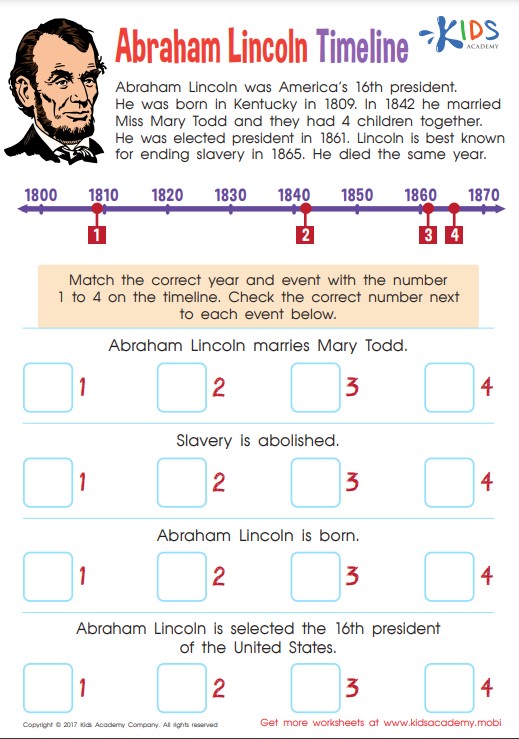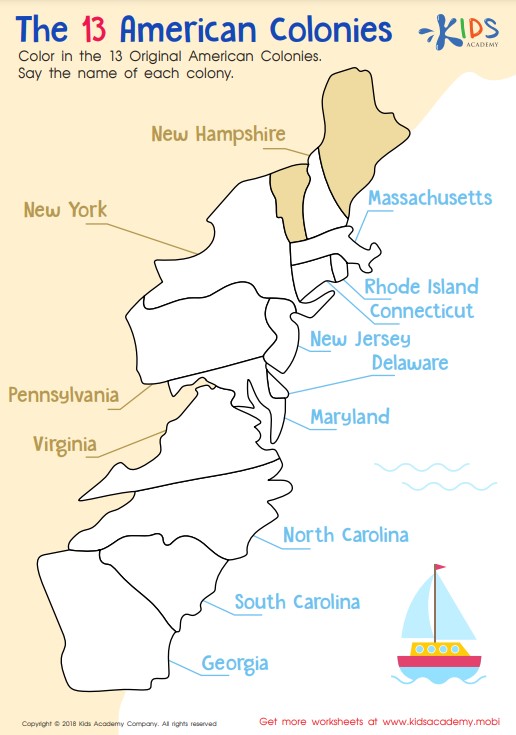Black History Month - A Time to Celebrate
Feb. 7, 2024
Black History Month is a dedicated time span to remember, celebrate and learn about African American history in the US. Originally established in 1970, Black History Month coincides with the birthday month of the infamous Abraham Lincoln, who was the American president who abolished slavery, and abolitionist Frederick Douglass, who campaigned for the ending of slavery.
President Lincoln led the United States during the Civil War, which was primarily fought over the enslavement of black people in the country. Many schools and leaders began recognising the week after its creation.
Since its establishment over 50 years ago the commemoration month has been recognised and adopted by governments in Canada, the UK and Ireland. February is now acknowledged internationally as an opportunity to celebrate the achievements of African-Americans, and provides a wonderful chance for those within educational settings to introduce themes of inclusivity, tolerance, kindness and diversity into the learning process.
History of the Holiday
The commemorative month came into being due to the historic lack of information surrounding the achievements of black Americans. Carter G. Woodson recognised this in 1915 and formed the Association for the Study of Negro Life and History to counteract this gap in historical records. In 1926 the group established the second week of February as Negro History Week to recognise all that had been achieved by African-Americans, however it took almost another 50 years until the week was adopted by central government and became a nationally celebrated event.
This three week national holiday has been observed since 1976 and has been by all presidents since the President Gerald Ford urged citizens to participate in the event. All following presidents did the same, often referring to the event as National Afro-American (Black) History Month or National African American History Month.
Introducing Themes of Diversity and Tolerance
Ensuring children are educated about the way African-American people have been treated throughout history is important. Education is key to ensure we raise enlightened, compassionate and caring youngsters, and provides a chance for little ones to not repeat the cruelty of the past.

For this year's month of celebrations, the theme is Black Health and Wellness, as determined by the Association for the Study of African American Life and History. This is the organisation, previously mentioned, which is the non-profit that founded this tradition in 1926.
Speaking about the month of celebration, Kevin Young, Director of The National Museum of African American History & Culture said:
"Black History Month is a time to celebrate the fullness of African American history and culture, but that cannot be contained in one month alone. As the world's largest African American museum, we have a responsibility to humanise history and objects through the lives, tragedies, and triumphs of everyday people. This February, we celebrate the theme of black health and wellness by creating a space that highlights black pioneers' trailblazing contributions to Western medicine, addresses health disparities facing our communities, and encourages healing through education."
In line with this year’s theme of health, the museum focuses on the importance of African-American doulas and midwives throughout history, and the vital role these individuals have played in bringing new life into the world, equipped with crude tools and sparse resources.
This could be a useful focus for educating children on the ways in which midwifery and hospitals have developed within 100 years, and how a lot of what is now taken for granted was previously unavailable to many.
The national museum explains how historically African-American midwives were often slaves, controlled by slave owners, who required these medical practitioners, usually women, to ensure the health of the rest of their reproducing enslaved women and their newborn infants to grow their workforce. Learning about the strides we have made within healthcare and hospitals is another valuable way in which children can enhance their understanding of those that went before during this commemorative month.
Creative Ways to Learn
There are lots of great ways to mark this month in educational settings and at home.
A good introductory activity is to introduce 5 famous African-American figures and start with a ‘get to know them’ session. Split the class into groups of five or six and provide them with a large sheet of paper and pens. Each group is given a different famous figure and they have 15 minutes to research, discuss and write down as much as they can about them. Once the time is up, each group must nominate a speaker and they can feed back to the class what they have found out.
Five example individuals are Rosa Parks, Martin Luther King, Mohammed Ali, Abraham Lincoln and Barack Obama. This activity is a valuable way for the children to learn more about inspiring individuals from the past and is also a way for them to develop research, team work, brainstorming and presentation skills.
Another interesting activity for youngsters to undertake is to create a cut and paste timeline to show the way in which actions of African-American individuals have contributed to the civil rights and social justice movements in the US. Building a timeline also helps children understand concepts such as chronology, sequencing and see clearly the way events happening over time can contribute to something bigger that has a real impact in history.
Firstly, teachers can introduce themes of civil rights and social justice and create an in-class discussion about them. Then they can lay out specific dates and events printed on multi-coloured cards and ask students to match the right date with the event, before creating a chronological timeline. This again can be done in teams or individually, providing further chances for learning and development, whilst commemorating the achievements of famous African-American figures.
Kids Academy Resources
Kids Academy has lots of varied, engaging resources to support education in Black History Month. Utilising a range of history worksheets, such as the ones shown below, ensures education about black history spans a variety of subjects including history, maths, geography and history. Using a range of materials also encourages the development of mental arithmetic, equations, writing and sequencing skills.
Raising Tolerant, Informed and Aware Children
Education and historical understanding are key to raising self-aware and tolerant youngsters and ensuring that society develops a collective sense of compassion and tolerance.
Adopting the themes of this month’s Black History Month in educational settings can lead to opportunities for children of all ages, ethnicities and experiences to come together and celebrate individuals from history who have achieved something valuable. By learning about African-American’s contribution to society youngsters will be inspired to ensure their societal contribution is also a beneficial one.
About the author
Alison Carter - Play-Based Educator, ESL Teacher, Trauma Sensitive Yoga and Pilates Teacher.
Manchester, England, UK.
References
- https://nmaahc.si.edu/
- https://www.kidsacademy.mobi/printables/grade-3/math/multiplication/grade-3-growing-jamestown-worksheet.pdf
- https://www.kidsacademy.mobi/printables/grade-1/social-studies/history/grade-1-the-13-american-colonies-worksheet.pdf
- https://www.kidsacademy.mobi/printables/grade-3/social-studies/history/grade-3-abraham-lincoln-timeline-worksheet.pdf
- https://nmaahc.si.edu/explore/stories/historical-significance-doulas-and-midwives














